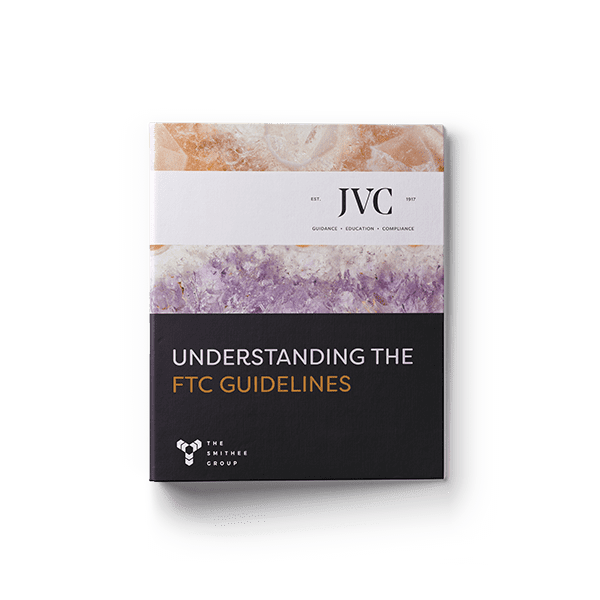With the uptick in “Made in USA” claims made in every industry in recent years, you may be wondering whether your jewelry company can compliantly advertise its goods as “Made in USA.” Unfortunately, under the FTC’s Made in USA Standard, the answer is more than likely no.
The current standard under the FTC is that any product advertised as “Made in the USA” (or any like word or phrase) must be “all or virtually all” made in the United States. This includes all significant parts and processing. “Made in the United States” includes any representation that a product is “made,” “manufactured,” “built,” or “produced” in the United States, or any other U.S. origin claim. You don’t need to use “Made in USA” for your advertising to fall into this standard; mere use of an American flag or anything that gives consumers the impression that your product is made in the U.S. is enough and could get your company into trouble.
In order to call a product “Made in America” or the like, the final assembly or processing of the product must occur in the United States, all significant processing that goes into the product must occur in the United States, and all or virtually all ingredients or components of the product must be made and/or sourced in the United States. For products made of precious metals, this can be very difficult if the metal was mined abroad, or if the origin of the metal is unknown. Additionally, virtually no products made with gemstones will qualify as “Made in the USA,” as a majority of precious and semi-precious gemstones originate from outside of the U.S.
What we often encourage members to do in the instance where they don’t comply with the Made in USA Standard is to make qualified statements where appropriate. Of course, these statements must always be accurate and must be substantiated by facts.

A few examples of qualified statements that may not violate the FTC’s Made in USA Standard are:
Keep in mind, the FTC has ramped up enforcement of this standard against companies making claims that cannot be substantiated. A few examples of recent enforcement actions are:
April 2019 – Marketer of water filtration system to pay $110k penalty for deceptive “Made in USA” advertisements.

Do you work with brands to recommend or endorse products? If so, you need to comply with the law when making these recommendations. One key is to make a good disclosure of your relationship to the brand. This brochure from FTC staff gives tips on when and how to make good disclosures.
DownloadAsk yourself: am I fairly representing my product in the marketplace?
Download our latest JVC book on Understanding the FTC Jewelry Guidelines to find out. This crucial tool explains:

We Educate
We Train
Settle Disputes
Keep You Up To Date